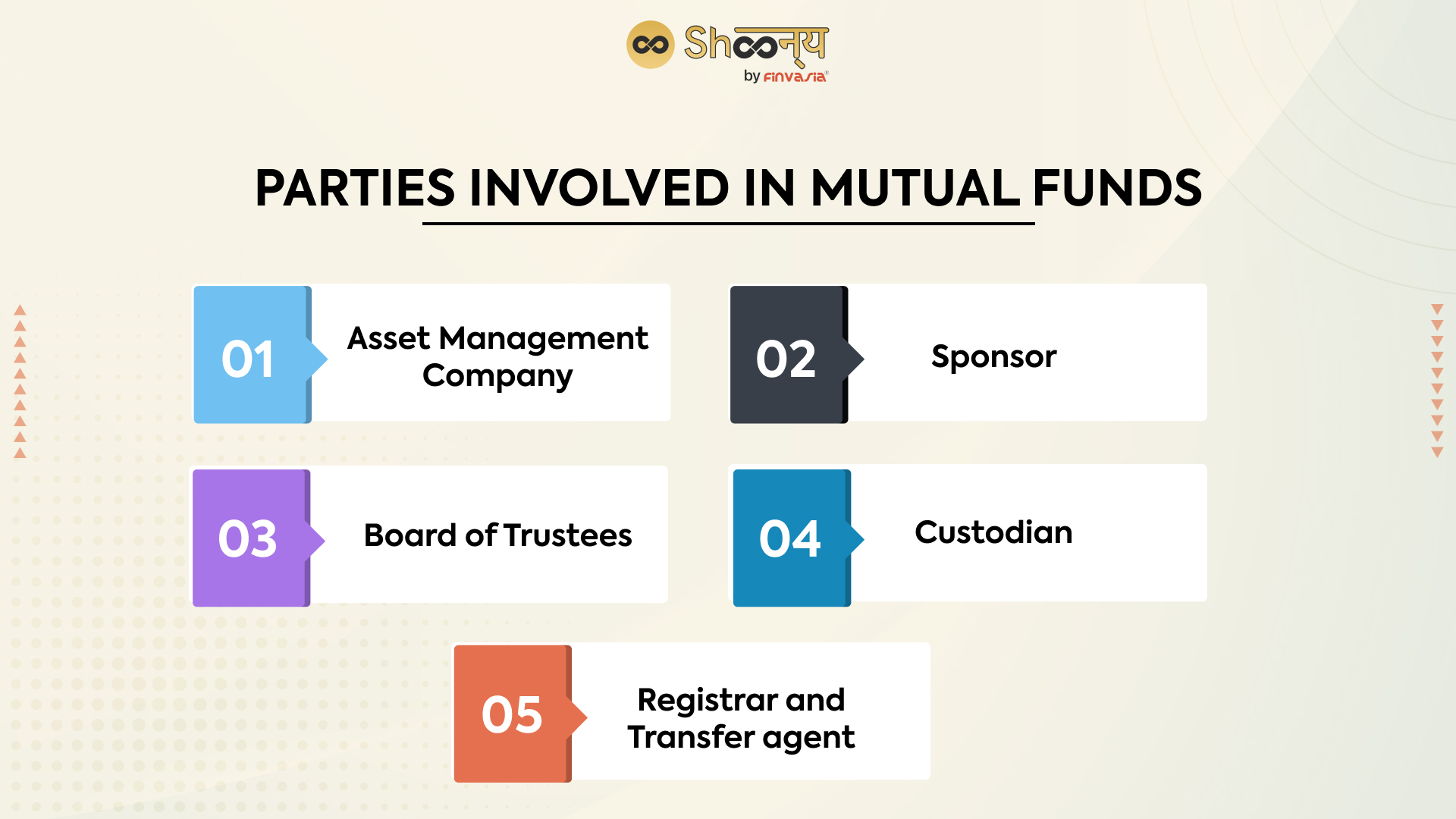Investing in mutual funds is not just about picking the right funds; it’s a complex ecosystem involving various key players who work together to ensure the success of your investments. Let’s take a comprehensive look at these major players, their roles, and how they impact the mutual fund landscape in India.
Understanding Mutual Funds:
A mutual fund is a pool of funds collected from multiple investors, managed by experts, and invested in a diversified portfolio of securities. This collective investment approach offers several benefits, including risk diversification and professional management.
The Key Players:

1. Asset Management Company (AMC):
The AMC is the heart of a mutual fund. It acts as an intermediary between investors and the financial instruments. Think of it as the engine that drives the mutual fund vehicle. The AMC’s primary responsibility is to manage the fund, decide where to invest, and ensure adherence to the fund’s objectives. They create different fund options based on investor preferences, risk appetite, and financial goals.
Example: Suppose you invest in an equity mutual fund. The AMC’s fund manager will strategically buy and sell stocks on your behalf to generate returns.
2. Sponsor:
The sponsor is like the parent company that gives birth to the mutual fund. They establish the fund, appoint trustees, and ensure the AMC’s formation. Sponsors are typically well-established financial institutions. They set the tone for the fund’s philosophy and objectives.
Example: HDFC Mutual Fund is sponsored by HDFC Ltd., a renowned financial institution in India.
3. Board of Trustees:
The trustees act as the custodians of investors’ interests. They monitor the AMC’s functioning, ensure compliance with regulations, and make sure the fund operates in the best interest of the investors. Trustees hold the AMC accountable for their decisions and ensure transparency.
Example: If the AMC deviates from the fund’s stated objectives, the trustees step in to rectify the situation.
4. Custodian:
The custodian is the safekeeper of the mutual fund’s assets. They hold and protect the securities owned by the mutual fund. Custodians ensure the securities are safe, and the transactions are executed accurately.
Example: If a mutual fund invests in stocks, the custodian ensures those stocks are securely held and properly accounted for.
5. Registrar and Transfer Agent (RTA):
The RTA handles the administrative aspects of the mutual fund. They maintain investor records, process subscriptions, redemptions, and keep track of unit holders.
Example: When you invest in a mutual fund, the RTA maintains your details and processes your investment or redemption requests.
Conclusion:
The mutual fund industry operates like a well-coordinated orchestra, with each player contributing a unique melody to the overall performance. Understanding the roles of these key players empowers investors to make informed decisions and navigate the mutual fund landscape effectively.
FAQs:
A well-established AMC with a track record of consistent returns and a clear investment strategy is a good sign.
Generally, AMCs offer funds that investors can access through distributors or directly, depending on the fund’s structure.
Look at the fund’s historical performance, expense ratio, fund manager’s expertise, and alignment with your financial goals.
Trustees ensure that the AMC operates within the fund’s stated objectives and safeguards investors’ interests.
While a reputable sponsor can enhance confidence, always evaluate the fund’s performance and strategy before investing.
______________________________________________________________________________________
Disclaimer: Investments in the securities market are subject to market risks; read all the related documents carefully before investing.

